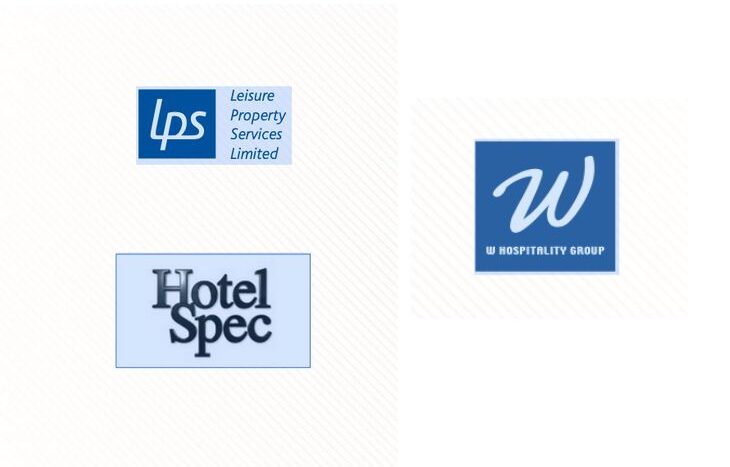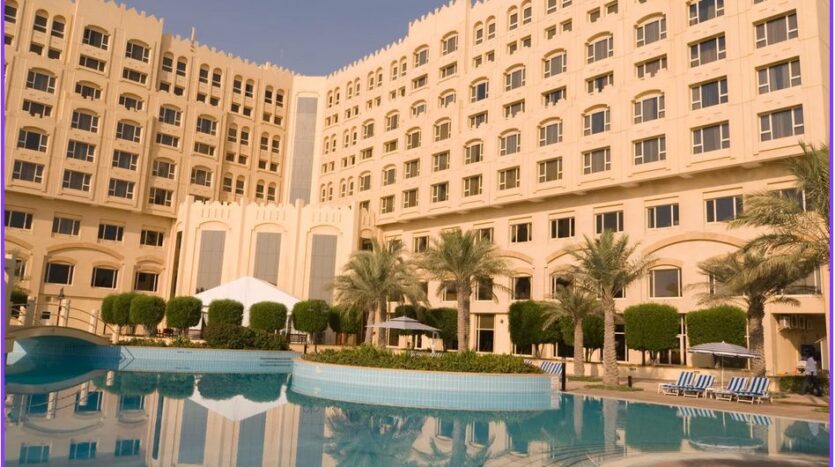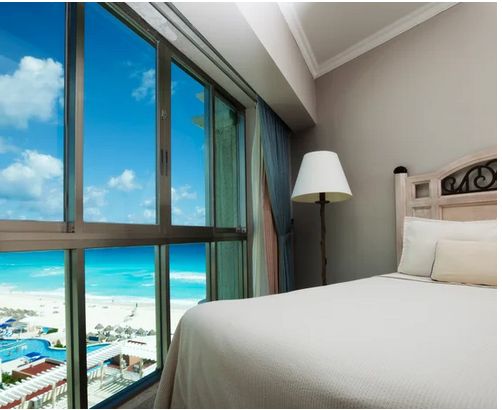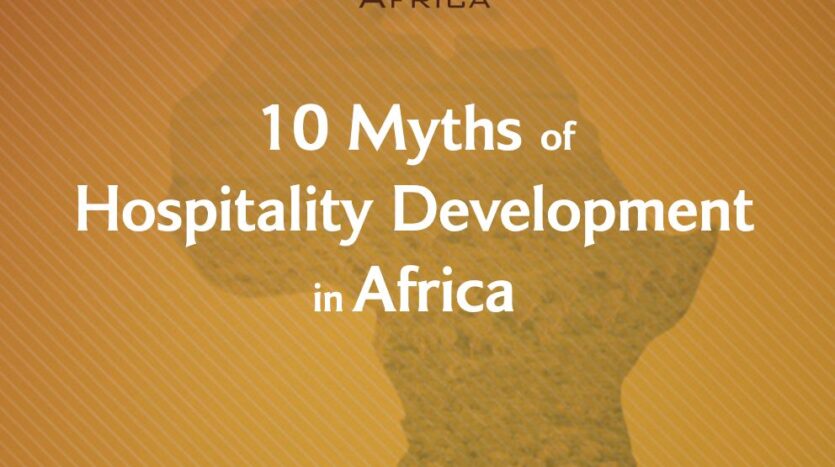10 Myths of The African Hotel Industry
There’s a lot happening in Africa!Earlier this year, a survey by W Hospitality Group counted 524 hotels in the chains’ development pipelines, with almost 92,000 rooms. That’s over 9 per cent more than in 2023, huge growth in the fastest-growing continent.
We’re proud to have been involved in several of these deals.
But in addition to our advisory services, helping deals to get done, and hotels to get built, we find ourselves more and more as educators, helping our clients to understand how the global hotel industry works. Many of Africa’s hotel developers are first- timers, developing their first hotel, and are eager to learn about this unique industry.
Over the course of a year Hotel Partners Africa receives hundreds of enquiries from prospective hotel owners, seeking our advice on how to enter the industry – or in some cases, what they should have done before jumping in feet first!
This little publication is here to help, by describing ten of the misunderstandings, or “myths”, that we come across, and our explanation of how it really happens on ground.
We hope you find it useful!
The Hotel Partners Africa Team
Myth #1:
Dear Trevor. Greetings from Africa! I am pleased to know you, and hope you are well. I have this great piece of land, and I want you to get Hilton to come and build one of their hotels on it.
Those outside the industry look at a hotel and think that whoever’s name is on the front door, that’s the owner. Whilst that was the case several decades ago, it is very, very unusual today. The hotel brands hardly ever own the hotels that they put their name to, that’s not what they do anymore. They bring branding, management and marketing expertise, and their job is to fill the hotel at the highest price possible, and convert the revenue earned to profit.
So the typical structure is that the hotel is owned by one party (sometimes identified by a plaque on the wall outside) and is managed and branded by the hotel chain, who has no investment at all in the property. With one or two exceptions, the hotel chains do not build hotels.
So a hotel investor must find a hotel chain to partner with, who will bring their intellectual property to the table, but they won’t bring any money. The right blend of equity (risk capital) and debt needs to be sourced, the hotel built and then operated by the experts. But those experts, the hotel chain, will not bring any money – that’s not what they do.
Myth #2:
Dear Trevor. Please contact Sheraton and find out if they will come and manage my hotel in Africa. I need them just to manage the hotel, my brother will be the director of finance because we need to be in control of the finances.
There are a few deal breakers when it comes to engaging a chain to manage a hotel, and this is one of the biggest!
Neither Starwood nor the vast majority of international brands, will agree for the owner to be in control of the cash it has to be 100 per cent under the control of the General Manager of the hotel and his senior colleagues.
The argument we get from owners is that they have obligations to the lending bank(s), and must ensure that interest and principal are paid when due. The manager might be spending the needed funds on other things, if the owner doesn’t stop them. We have seen deals founder at the last minute, when everything else has been agreed, when the owner makes this an issue. What is actually the case is that the owner just doesn’t trust anyone else to handle their money.
For the manager, it is very simple.
Cash is the lifeblood of the business, which is running 24/7, and they cannot encounter situations where they are unable to service the guests’ needs, and deliver the brand promise, because the necessary cash is not available. Of course the management company is aware of the owner’s need to service his loans, but robbing Peter to pay Paul isn’t the answer.
Myth #3:
Dear Mark. Please see the pictures of the Ibis Hotel I have built in Africa. I know you will like it, especially the way we have changed the layout of the bedrooms from what you see in all your other hotels, they are much bigger, and all 40 of them have a bathroom with a Jacuzzi bath. We are ready to open, and need you to get Ibis to come and manage it for us.
They got it the wrong way round, didn’t they?! Any chain needs to be involved in a hotel development at the outset, to ensure that their brand specifications are fully implemented – if you want Ibis to manage and brand your hotel, then you have to build them an Ibis.
In addition to signing a management agreement, the chains will also sign a Technical Services Agreement with a prospective owner. This is for the provision of their intellectual property in terms of design. Each brand has developed its own design specifications which have to be adhered to. Ibis don’t want hotels with larger bedrooms, they specify how large the rooms are to be in every Ibis around the world, they don’t have Jacuzzi baths, and they (and the majority of the international chains) are not interested in hotels with 40 rooms, that’s just uneconomical for them to run.
If Ibis had been brought in from the get-go, the probability is that they could have saved the owner money, finding more rooms within the same building shell, and the same budget, creating a hotel that works, profitably, for both parties.
Too late!
Myth #4:
Dear Mark I have a great site and some cash to put into the project. Not enough to finish it yet, but I have given the contractor enough up-front money for the structure to go ahead.
Once we mobilize and go to ground, investors will come. I will have about 9 months to raise the additional equity I need for the bank loan to activate.
Sorry, contracts don’t work this way. Any reputable contractor will require proof of full funding up front and it is quite normal for a contract to require 50% of the full development cost as an advance payment. Thereafter, there will be regular claims submitted by the contractor for progress work completed.
Most contracts will often also require a payment guarantee from the owner to be provided as security for the contractor. The contractor will also need to provide certain performance bonds, advance payment guarantees etc, but that does not lighten the load on the owner to provide proof that he has the funds to complete the project.
Unfortunately, banks and other funding institutions will also stipulate, in their loan agreements, a number of conditions precedent, foremost among them being proof that the owner has his full equity in place before any draw down on the debt funding can take place.
In other words, don’t think of getting started before your financial planning has been finalized as you will certainly find yourself in a world of pain, loads of extra costs caused by delays, compound interest on outstanding payments and claims from your contractor.
Myth #5:
Dear David. Please see attached a photograph of my new hotel in Africa. I built it for US$40 million two years ago, so it must be worth US$50 million now. The Bank requires a valuation, so if you could just provide a valuation for US$50 million or more that would be great.
A valuation is based upon the price that a property would sell for if it were sold. It is not related to construction costs at all! Ideally, if the project is well planned, built well, and trades as expected, then the value should be more than the construction costs, but this is not a certainty.
If the property was “over-specified” at the time of construction (a five star hotel was built where a mid-market hotel would have been more appropriate), or if it was not planned properly (too large, too small), or if the market has changed fundamentally (main clients closing down, or too much new supply entering the market), then the value could be lower than the money that has been invested in the property.
A good valuer will do more than just provide the market value.
He will also review the trading and will suggest ways to enhance trading and therefore the value of the property. He can also provide valuations at future dates that will show what will happen to the value of a property if certain investment is undertaken, or if trading at a certain level is achieved. This can help determine, for example, whether it would be beneficial for the owner to change the branding of the hotel.
Myth #6:
Dear David. I am now ready to sell my hotel in Africa. You need to do it off-market so that none of my clients, staff or friends know that I am thinking of selling. The purchaser will pay your fees. My friend is also speaking to a few people to see if they want to buy the hotel.
This myth has three key misconceptions. Firstly, if you are selling your hotel you want your agent to work for you to get the best price. If the agent is being paid by the purchaser then they are duty bound to act on behalf of and in the best interests of the purchaser. It really is worth employing the best agent and paying for their services; this fundamentally improves the chances of a successful sale, and has the agent fully incentivised to get you as high a price as is possible.
The second issue is about having dual agents. Instructing multiple parties to sell a hotel generally results in an uncoordinated approach, that undermines a strategic marketing campaign.
And then there’s this wish to carry this out as an off-market transactions. It’s extremely difficult to keep any transaction a secret, and even the best plans can lead to embarrassing leaks.
It usually is not a problem for staff or customers if a hotel is sold, as long as they are informed and process is well managed – it’s much more damaging for staff morale when they learn about a “secret” sales process. And most importantly, a sale “off-market” will generally result in a lower price.
Myth #7:
Dear David. Please see attached my design for a new hotel on my land in Africa. The total cost of building is US$30 million, and I need you to get me a loan from a bank for this amount.
Getting the financial structure right from the get-go is so important, and this is not going to work! The developer wants to borrow the entire cost of building the hotel. Banks are totally risk averse, and therefore will (sorry, should!) never take all the financial risk – if the hotel fails, what pain is the developer going to experience? In this case, possibly the loss of the land, but actual cash loss? Nothing.
What a bank looks at primarily is the ability of the projected cash flows to service the debt, i.e. interest and repayment, in accordance with the terms of the loan. They will need an independent feasibility study to show what those cash flows might be, and will hardly ever lend more than about 65 per cent of the development cost, with the developer finding the balance in cash equity.
Borrowing too much money is a recipe for disaster – it means that from the beginning, when revenues are low as the business gets a foothold in the market, all available cash has to go to service debt, with not enough to service the operation, to buy all the things that are promised on the menu, to pay the employees, to undertake routine maintenance. The hotel suffers, the customers suffer, the staff suffer……..
Myth #8:
Dear David. I attach my projections for the hotel I am building in Africa. It shows really high returns for you if you invest in my project.
Showing excessive returns, even in Africa, is going to delay completion of the feasibility study as the assumptions used will always be scrutinised and stress-tested to look at all the “what- ifs”. Anyone can make the numbers work in a spreadsheet, but the underlying assumptions are extremely important. You can’t assume average room rates and occupancies that are way above realistic market statistics, or costs so low it is also unrealistic, even though the owner will swear blind that this is achievable, his project is different from all the others!
A balanced and well thought out business plan is an important document to be used by the independent consultant for the feasibility study. The business plan needs to have the correct development costs and structure of the funding, but the underlying assumptions have to be realistic!
Anyway, we don’t invest in hotels, we provide advisory services to help to ensure our clients’ success. If we also owned hotels, we couldn’t any more proclaim our complete independence, which lenders value almost as much as our experience and expertise.
We’re sometimes asked (and we never accept) to “invest” our fees in projects – that’s worse, because then we would have a clear financial interest in presenting the project in the best possible light, instead of being completely independent and treating our clients’ interests as of paramount importance.
Myth #9:
Dear Petra. I am the owner of a hotel in Africa, but the profits are not sufficient to pay the bank. I am paying a lot of money to pay the staff. I have decided to source more reasonably “remunerated” employees, and require your assistance with that.
You pay peanuts, you get – well, you get people who are desperate for a job and will, on appointment, immediately start looking around for something better paid, who are neither motivated nor long-lasting. If your staff are constantly changing, then guest satisfaction and repeat business will be negatively affected.
Underpaid staff are not happy staff, they may take on another job to make ends meet, resulting in a reduction in productivity through tiredness, and have a higher propensity to steal. The lack of profitability, and the inability to service debt, may be because you don’t pay the staff enough, so don’t start a slash-and-burn on the payroll until you have properly analysed the business.
Your staff are a long-term asset, not a short-term cost. When reviewing staffing costs it is vital to have a balance of senior, experienced staff (who naturally come at a price) who can train and impart their knowledge and skills to less experienced (and therefore less costly employees).
This will assist in establishing the service levels, maintaining and improving on the standards and guest experiences, which brings a higher level of guest satisfaction and encourages repeat business. In the longer term this contributes to higher occupancies and higher profits.
Myth #10:
Dear Petra. I am the owner of a hotel in Africa, but I am having difficulty finding good expatriate managers to work for me.
It seems that Africa is not a continent that is likely to attract international talent due to the risks associated with living and working here. What should I do?
There is undoubtedly a great deal of interest in the hospitality management sector (talent pool) for opportunities in Africa, and is continuing to grow, in our experience, but one must consider the remuneration policies and other terms of employment – are you offering an attractive package, or treating them as “disposable”? Do you pay them on time?
What are the benefits to them in general if they are to work away from their families? Will they have comfort and peace of mind that these “offers” will be met?
And where have you been looking? Many “Africa virgins” will be resistant, but there are many seasoned Africa hands who are looking for jobs, from all over the world. One senior regional hotel manager told us that he has witnessed a distinct change in attitude in his company, with good people much more interested in considering a posting to Africa.
And there are many good people in South Africa, North Africa, India and elsewhere who have a different perception of Africa and of the risks of working there. Therefore you need a good consultant who can identify, screen and present those excellent candidates for you!
Credit – The Hotel Partners Africa Team
Established in Lagos in 2003, it is regarded as the market leader in sub-Saharan Africa due to the market and financial expertise of its staff, worldwide knowledge, and commitment to clients.
For more information, please email: info@HotelPartnersAfrica.com or visit www.HotelPartnersAfrica.com
Telephone : +234 803 321 0646











